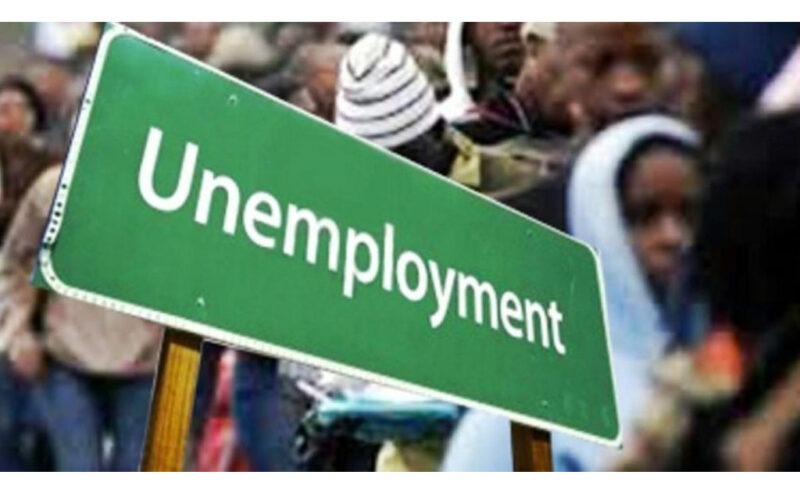Niël Terblanché
Namibia has amongst the highest unemployment rates in the world and the country’s current credit rating has been set at junk status by international rating agencies because of burdensome over regulation from the government.
According to the Economic Policy Research Association (EPRA), Namibia’s economy remains stuck in a very precarious position, despite the economic potential provided by green hydrogen and oil discoveries.
“With a suboptimal investment environment Namibia can simply not harness the potential these industries may present. We should not suffer under the illusion that (honest) investors are lining up to invest in Namibia. We must make investment in Namibia attractive, for we compete against many, far more attractive destinations,” Eben de Klerk, an EPRA advisor said.
In a letter addressed to Lucia Iipumbu, the Minister of Industrialisation, Trade and SME Devleopment, De Klerk bitterly croticised the proposed Investment Promotion and Facilitation Bill and said that the Namibian Government seem determined to proceed with a bill that will be damning for Namibia’s investment environment.
“Since 2016, investment in Namibia declined, and so did the economy, with only a small spark of improvement last year; but still not nearly enough to compensate for the decline over the preceding six years. It was also in 2016 that Government mooted the NEEEB and passed the impugned and still inoperative Investment Promotion Act,” De Klerk said.
He added that it can be deducted from economic indicators on investment, fixed capital formation, government debt, and many more, that it is clear that these policies caused substantial harm to the economy.
“Most notably they contributed to a substantial decline in employment. We are informed that more than 86,000 graduates are now unable to find jobs,” he said.
In 2020 the Namibia Employers’ Federation conducted a study on ‘The key challenges to doing sustainable business in Namibia’. Burdensome regulation was found to be the primary obstacle for businesses, and thus also the primary obstacle to job creation.
“Despite this, Government keeps on adding more and more regulations. This may well be the root cause for Namibia’s scandalous unemployment rate. The second biggest challenge was found to be the low skills and qualifications of the workforce.
According to De Klerk, there is little to nothing in the proposed bill that makes investment in Namibia more attractive. He added that the bill simply proposes a host of additional obstacles for both local and foreign investors.
“Most concerning is the fact that the government intends to take full control over local and foreign investments, with the powers to decide who may invest, who investors may and even must partner with, in which industries may be invested, where and where not investments may be made, and prescribe with unlimited scope the requirements to which investors must comply with. We doubt that even in communist regimes do governments exert such extreme control over private sector investment,” De klerk stated.
According to the advisor, this does not bode well for investors, and definitely does not create a friendly investment environment, despite the altruistic idea that government may have.
“Conducting business in Namibia is hard as it is, without Government telling local and foreign investors that they are not allowed to develop and run a winning formula. Investors will seek destinations where they are not dictated to, hampered and handicapped,” he said.
De Klerk added that EPRA finds it difficult to understand why the government remains adamant to reduce Namibia’s global competitiveness and create an even more toxic investment environment than already exists.
“This bill will create an institution of extraction, to pave the way to expand a rent-seeking economy. From such a system an extremely small portion of society benefits in the short term, at the expense of the larger population.
Employment will stagnate, but more likely reduce, as we have witnessed since 2016, and the persons who will suffer most are the exact same Namibians who today cannot afford a bread to feed their children. The majority, most of whom currently cannot find jobs, will suffer, while a few well-connected individuals will become rich. This is not empowerment but impoverishment,” he stated.
According to De Klerk, the economic destruction and loss of investor trust that such policies create take many decades to remedy.
“With the massive unemployment rate, a steep increase in bank repossessions of homes and close to unsustainable government debt we are currently experiencing, this creates insecurity for local and foreign investors, and is a gamble we simply cannot afford,” he said.
EPRA implored the minister not to proceed with the bill and added that it is EPRA’s desire, in the interest of all Namibians, and especially the youth and future generations, that the government changes its economic ideology, and thus economic policy direction, towards an open, free, non-discriminatory economy, to put the country back on a path to prosperity.
“Investment legislation must incentivise investment, not deter it. Government must create an enabling environment, not control it. Sustainable economic growth and job creation stems from an open, free market economy. A closed, government-controlled economy cannot flourish. From our own economic data from 2016 onwards this is already abundantly clear,” he pointed out.




